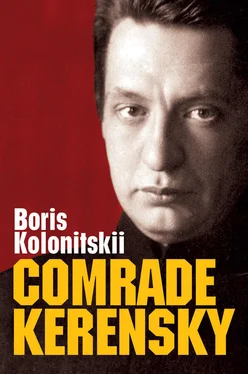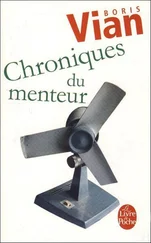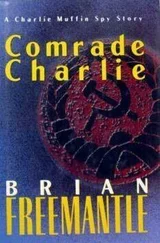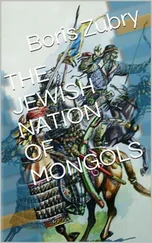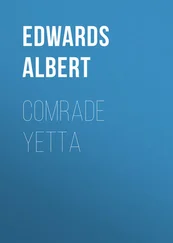Many lawyers, however, were perceived by society as politicians and behaved as such. This role of ‘tribune of the people’, denouncing the regime and its ‘servants’, was one Kerensky assumed. For him, every trial was a battle with a hateful government personified by the state prosecution. Here is how his role is described by Leonidov: ‘A. F. Kerensky was least of all a professional lawyer, selling his time and powers to individuals to protect their selfish interests and rights. He has always been drawn to defend the interests of the disenfranchised social classes, has always battled for their right to life, and invariably tried to bring them to that wonderful day when they would enjoy their rights in full measure.’ 76
This description harmonizes with the tenor of Kerensky’s speeches in 1917, denouncing the failings of the judicial system of the old regime. It is, nevertheless, an unfair representation of the reality of the pre-revolutionary judicial system, where many of the empire’s judges and prosecutors were highly professional lawyers conscientiously performing their duties. When he became minister of justice, Kerensky effectively recognized the good faith of some of his former opponents in court and appointed them to positions of power.
As counsel for the defence, the future minister of justice had found himself involved in high-profile trials. The case of the so-called Tukum Republic, in which he defended Latvian insurgents, attracted much publicity. Kerensky also conducted the defence of Labourites (Trudoviks) who signed the Vyborg Appeal. He participated in the trials of the leaders of the All-Russia Peasant Union, of the St Petersburg Military Organization of the Social Democrats, of St Petersburg province’s Union of Teachers, of Tver province’s Peasant Brotherhood, and of the Northern Flying Squad of the Combat Organization of the Socialist Revolutionary Party. Kerensky’s clients included Bolsheviks: he defended the fighters who participated in the raid on the Miass treasurer’s office. These trials were duly recalled by his biographers in 1917. Even this partial list of cases demonstrates how much the young defence lawyer was in demand. He was admitted as a full member of the Corporation of Lawyers, and the Council of the St Petersburg Circuit of Courts of Justice called him to the bar in 1909.
Of particular importance for Kerensky’s career was the trial of the Armenian socialist Dashnaktsutyun Party in 1912, when the elite of the Armenian intelligentsia found themselves in the dock. Kerensky was able to prove the falsehood of witness statements presented by the prosecution. It was a resounding victory for the defence, and one of the investigators was even formally charged with perjury and falsification. (The authorities declared him mentally unfit in order to save him from being prosecuted.) Of the 145 accused, 95 were acquitted. 77
This trial was a favourite of Kerensky’s biographers. Leonidov wrote of a political victory for the defence, Kerensky having supposedly proven that it was not the investigator who was sick and unfit but the court system created by Minister of Justice Ivan Shcheglovitov, who, for oppositionists, and particularly for the radical lawyers, was the personification of the regime they detested. 78Kerensky’s Odessan biographer represents the trial as a tragic duel between an honest, idealistic lawyer and an all-powerful system, a duel whose outcome was predetermined.
Kerensky had again to contend with that stone wall. The court chairman did not let him speak, cutting him off in mid-sentence when his accusations were becoming too near the mark. He kept threatening to have him removed from the court and made vitriolic remarks during the course of the trial. The shocked courtroom witnessed the heroic struggle of a man unarmed with one who was armed, a battle between lawfulness and brute force, a struggle whose outcome was – alas! – a foregone conclusion. 79
This style of writing about Kerensky’s legal career was at odds with the actual history of the trial but in tune with the general climate of denouncing the old regime, which was a major component of Kerensky’s own speeches. The image of a valorous, uncompromising champion fighting a pitiless system was grist to the mill of those aiming to promote him.
There were occasions when Kerensky’s success in the role of tribune of the people had an adverse effect on the fate of those he was defending. His colleagues warned: ‘If you want him to defend the revolution, he will do so brilliantly, but if it is the defendant you want defended, go to someone else because the revoutionary always takes precedence over the lawyer in Kerensky. The military judges hate him!’ 80This testimony has the ring of truth, although, as we have seen, Kerensky did have his successes in court. What is perhaps more to the point here, however, is that his biographers believed their readers would be more taken by the description of a lawyer who gave priority to the revolution rather than to defending his client. In 1917 it was the image of the fiery revolutionary lawyer which was effective in underpinning his authority.
Some defendants, indeed, wanted just such a defence lawyer who shared their radical beliefs, and Kerensky’s reputation had revolutionary activists seeking him out. Yevgenia Bosh, a Bolshevik arrested in 1912, was eager to be defended by such a lawyer. Her mother wrote to Kerensky, ‘She does not want to be defended by a lawyer in whom she could not have total confidence and respect for his previous work and very much wishes to ask you to defend her.’ 81She was not the only revolutionary to appeal for support to the radical barrister.
Sensational trials were widely reported in the press, and Kerensky’s reputation and influence in radical circles grew. Even in August 1917, such an opponent of the head of the Provisional Government as Sergo Ordzhonikidze recalled the Kerensky ‘who at one time, acting as a defence lawyer, forced all Russia to heed his ardent speeches.’ The prominent Bolshevik was contrasting Kerensky the earlier radical lawyer with Kerensky the minister. 82The political lawyer had been respected by left-wing Social Democrats too, and it is striking that, when later they were attacking Kerensky as head of the Provisional Government, they respectfully recalled this earlier period in his life.
A further contribution to spreading Kerensky’s fame across the nation was made by the events at the Lena goldfields, on which nearly all his biographers dwell. In April 1912 police and troops opened fire on strikers there and 250 people were killed. There was a public outcry and a government commission was sent to investigate. The opposition in the Duma insisted, however, that a special commission, independent of all government departments, should be established, and the money to pay for it was raised by public subscription. The commission, consisting of a number of lawyers from Moscow and Petersburg, was headed by Kerensky. The lawyers helped the workers conclude a new agreement with the company. Armand asserts that his colleagues on the commission described Kerensky as ‘a wonderful young man, but hotheaded. It is difficult to conduct an investigation if you are burning with indignation.’ 83Leonidov does not see this as negative, and many readers in the revolutionary era also viewed it positively. Society’s radically inclined members endorsed Kerensky’s strident denunciation of the perpetrators, even if their guilt had not been legally established. His image as a fiery tribune of the people unmasking the regime helped to establish his reputation as a politician, both before the revolution and, to an even greater extent, after it.
The investigation contributed to his reputation, even if his achievement is sometimes plainly overstated. ‘Kerensky forced the government to admit its responsibility for the atrocity, and before the truth proclaimed by Kerensky even the most dedicated servants of the fallen regime had to bow their heads,’ Leonidov declares. 84
Читать дальше
